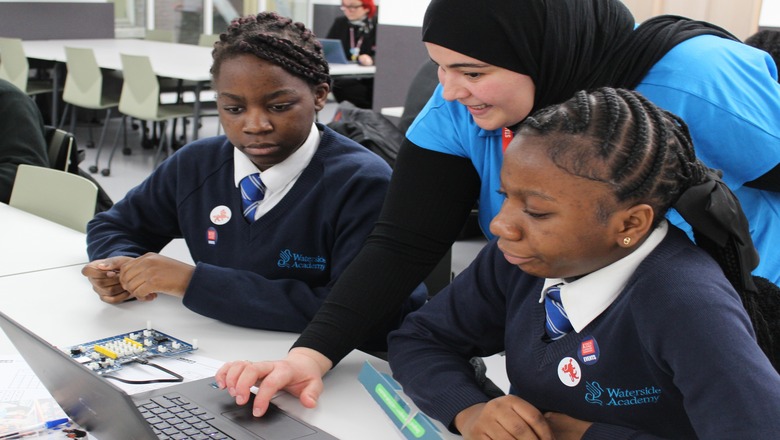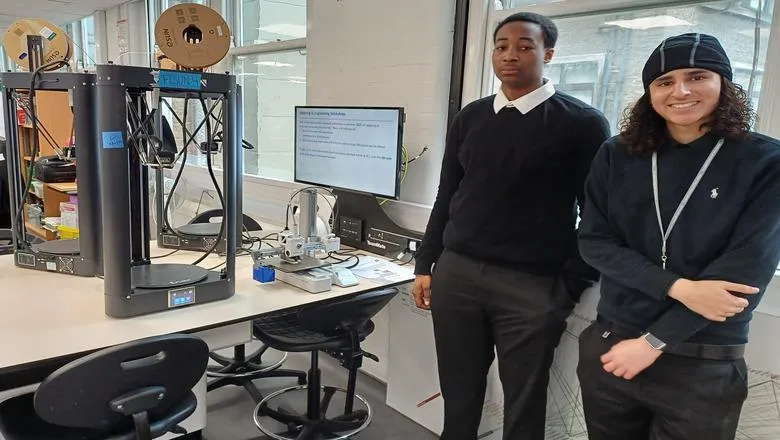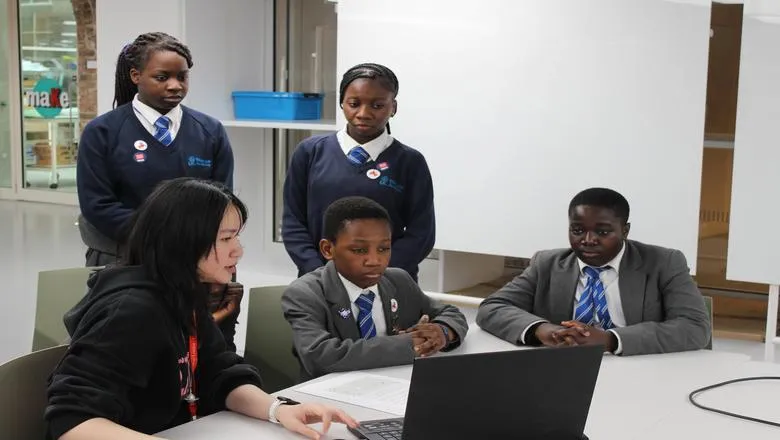Outreach that starts in London first, makes our motto “Sancte et Sapienter” a reality. There are many social-economic constraints in London before higher education; outreach like this to underprivileged children of colour turns their dreams to a reality that benefits society.”
Rick Awotwe-Mensah, Undergraduate student
04 April 2025
“Interactive, fascinating, new experiences”: King's inspires future engineers at Success for Black Students outreach days
Academics, students and technicians came together to bring engineering to life for 64 London highschoolers at two Success for Black Students events.

A team of academics, students and technical staff brought engineering to life for 64 visiting Year 9-12 Black pupils from London schools through a series of practical workshops, campus tours and Q&A sessions in two Success for Black Students outreach events.
Success for Black Students (SFBS) is a project jointly spearheaded by the School of Biomedical Engineering & Imaging Sciences and the Faculty of Natural, Mathematical & Engineering Sciences that aims at supporting aspiring Black engineers and physicists at school and university.
According to the Royal Academy of Engineering, only 9% of engineers in the UK are from Black, Asian or minority ethnic backgrounds despite 27% of first-degree qualifiers in engineering being from these groups. The one-day outreach events provide an avenue for Black pupils to learn more about studying engineering, as well as exposing them to role models working in the sector at a top UK university.

Through a series of interactive workshops, pupils were given the chance to explore a range of technologies and discover their real-life applications. During the visit at Guy’s Campus, Year 11 and 12 pupils got to 3D print their own object in an activity led by Professor Kawal Rhode, who explained how this technology can be used to create implants used in surgery.
Dr Elsa-Marie Otoo then led a workshop on 3D visualisation where pupils got to experience virtual and augmented reality for the first time and learn how these technologies might be beneficial when doctors need to visit patients outside a clinical setting, explaining how these can be used by doctors to access patient data securely.

During the visit at the Strand Campus, Year 9 and 10 pupils programmed an Arduino microcontroller, a miniature computer set up to have lots of devices attached. With the guidance of Dr Naseem Ramli, participants learned to control LEDs, buzzers and sensors in a series of tasks.
Pupils were also able to have a go at basic programming of NAO or Pepper robots in a workshop led by Zhou Zeng, and witnessed cutting-edge research from Dr Ernest Kamavuako, who showed them his work on a portable heart sensor that could open up access to cardio scans outside of hospitals.

It was a pleasure planning the outreach event together with a team of dedicated staff and very rewarding running the event with school pupils. They showed a high level of engagement despite having different aspirations for their future plans.”
Dr Ernest Kamavuako
Practical workshops were complemented by campus tours led by student ambassadors, where pupils could experience intimately parts of the university which may otherwise be closed off to them, including lecture theatres, libraries, cafes and state-of-the art study spaces. In addition, a Q&A panel discussion with current King’s students allowed pupils to gain an insight into studying engineering and university life. By showing participants what engineering is and what it can lead to, these events aimed to empower Black pupils to pursue a path in this direction.
For those that choose to come to King’s, Success for Black Students also runs a mentoring programme for undergraduate engineers and physicists which gives students insight into academia and industry.
A school pupil attending the event, reflected that they found the day “really interesting, engaging and interactive. [I] enjoyed the sessions: coding, workshops, robotic, really boosted my self-esteem towards engineering.”
SFBS has been running since 2022 and received £50k of funding from the One King’s Impact Fund in 2024-25. Learn more about the programme on the webpage.




